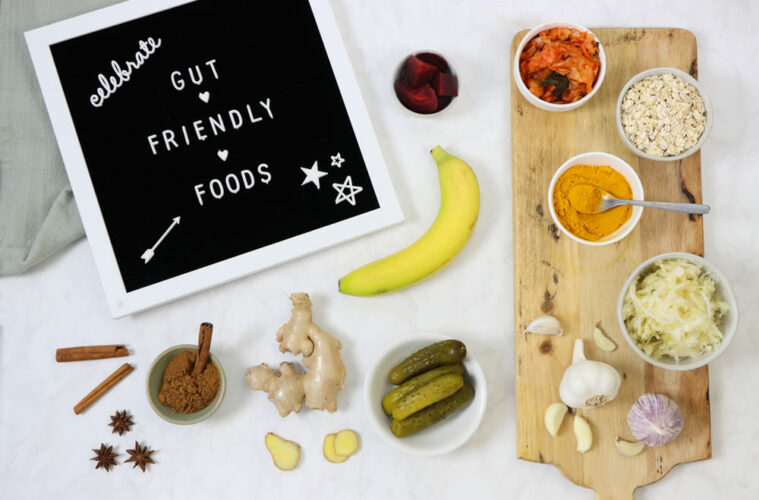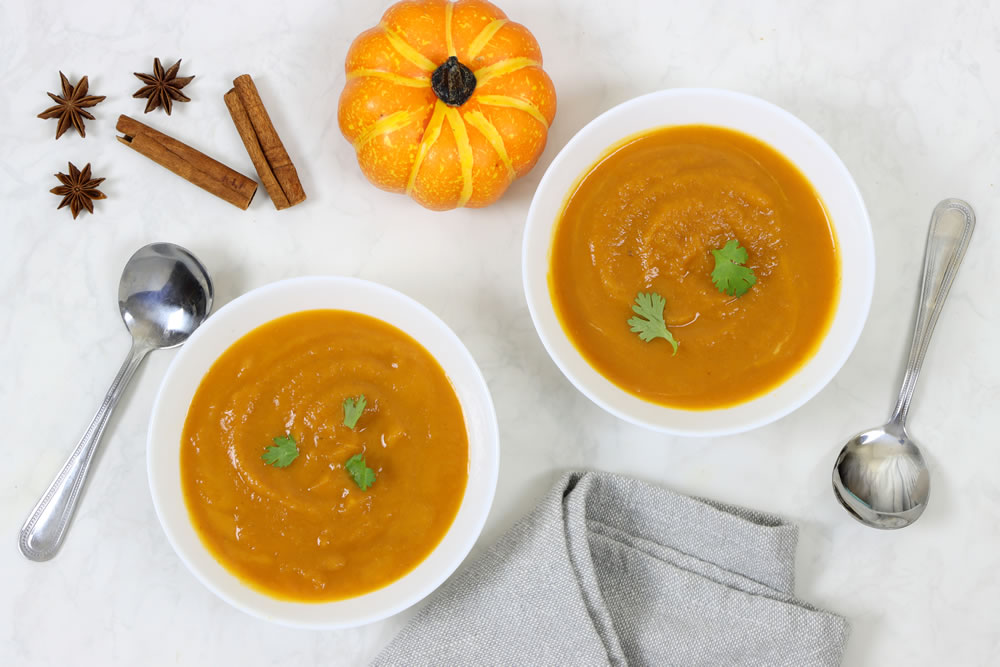Retire And Journey uses affiliate links. If you make a purchase through them, we may receive a small commission (for which we are deeply grateful) at no cost to you.
Sponsored by and developed in part with support from Ferring Pharmaceuticals.
Food is one of our favorite parts of the holidays. But when our gut health isn’t at its best, enjoying some of our favorite dishes and desserts can actually make us feel worse. As someone who’s had her fair share of gut issues after taking a course of antibiotics for Lyme Disease over a decade ago, I can tell you it’s no party. C. diff infection, short for Clostridioides difficile infection, affects the gut and can be particularly challenging to deal with this time of year.
Here we have some simple tips and tricks to manage your symptoms through the holidays so that you or someone you love can still enjoy the season.
Our digestive tracts, commonly referred to as our “gut,” are home to a variety of good, and sometimes bad microorganisms. Together they make up our gut microbiome. The good guys help us immensely. They provide us with much of our immunity, keeping the gut lining healthy, producing some B vitamins as well as vitamin K and also breaking down complex plant fibers so the body can then use them for an important form of energy. They also help to crowd out harmful microbes and are crucial to helping us stay healthy. Without enough of these good “bugs,” an imbalance occurs, leaving room for more harmful microbes to take over making us sick.
C-diff is one of these not so helpful bad guys. In fact, this bacteria can take hold deep inside the gut and cause a variety of nasty symptoms that can make celebrating the holidays difficult.
How Does Someone Get C. diff?
C-diff often affects seniors, but the rest of us aren’t totally immune.
C-diff can affect anyone who:
- Is taking or has recently taken antibiotics
- Has a weakened immune system
- Is 65 years of age or older
- Has spent time in a hospital or long-term care facility (a nursing home, for example)
Although sometimes necessary, antibiotics wipe out both the bad and good bacteria in our systems. If the good bacteria aren’t replenished, this can trigger that imbalance that can give C. diff the green light to take over.
The CDC reports that you are 7 to 10 times more likely to get a C. diff infection while on antibiotics as well the following month after.
And once we get C. diff it’s not uncommon to get in a cycle of recurring infections known as recurrent C. diff, which usually occurs between 2 and 8 weeks after the first infection.
C-diff is also very contagious and can become a serious health threat to others living in the same home or space. It can even be spread by healthy individuals.
Read here on tips to reduce the spread of infection.
What Are The Symptoms Of C.diff ?
Depending on the severity of your infection, symptoms of C. diff can include:
- Watery diarrhea – 3 or more times per day
- Nausea
- Fever
- Rapid heart rate
- Abdominal pain or cramping
- Dehydration
- Depression due to recurring infections
Visit Ferring Microbiome for a full list of C.diff symptoms
If you recognize any of these symptoms in yourself or a loved one, be sure to make an appointment with your doctor immediately to get a proper diagnosis. C. diff can potentially lead to serious health issues if not treated properly.
The effects of recurrent C. diff sometimes go beyond physical pain It can trigger depression and other mental health concerns, too. For mental health concerns contact a mental health professional for guidance and support.
Eating Through The Holidays With C. diff
Food and eating can become a source of anxiety for people with C. diff.
Not only do C. diff sufferers have to drastically change their diet, but some of the foods and ingredients found in our favorite holiday dishes can rile up symptoms.
C-diff can make celebrating the holiday season centered around those food fueled gatherings we all love stressful and difficult.
What Foods Should You Avoid With C. diff?
As with any infection, a healthy diet and good nutrition are helpful ways to support your gut health. But before we get into what you should eat with C. diff, let’s discuss what foods and drinks you should avoid to minimize symptoms and help you heal.
FOODS TO AVOID WITH C. diff:
Greasy foods and unnatural oils including:
- Margarine
- Olean and Olestra
- Fried dishes
Foods high in insoluble fiber like
- Wheat
- Barley
- Brown Rice
- Nuts and Seeds
- Cucumbers, peas and tomatoes
Raw cruciferous veggies including:
- Broccoli and cauliflower
- Cabbage
- Kale
- Arugula
- Onions
Unpeeled or raw fruits like:
- Unpeeled apples and pears
- Cranberries
- Berries
- Prunes
- Dates
Dairy products with high amounts of lactose like:
- Cow’s milk
- Ice cream
- Soft cheeses like brie
Sweets, sugary or spicy foods including:
- Cakes, cookies and pies
- Hot peppers and hot sauce
Caffeine-containing drinks like:
- Coffee
- Soda
Foods And Drinks To Enjoy With C. diff
While enjoying these foods it’s best to eat and drink in smaller portions but more frequently throughout the day.
These recommendations are generally ok, but avoid any food that you find worsens symptoms and ask your doctor about what you can eat during and after C. diff.
Lean Protein including:
- Turkey
- Chicken
- Eggs
Calcium sources including low-lactose or non-dairy milks and cheeses if tolerated like:
- Mozzarella
- Swiss
- Feta
- Parmesan
- Hemp, soy, almond, flax or oat milk
Foods with soluble and easy to digest fiber including:
- Oatmeal, oats and flaxseed
- Bananas
- Oranges
- Peeled apples and pears (peeling reduces hard-to-digest fiber)
- Carrots
Easy-to-digest starchy foods like:
- White bread, toast, pretzels and crackers
- Mashed Potatoes (without butter or cream)
- Noodles
- White Rice
Healthy grains:
- Quinoa
- Millet
- Buckwheat
Gut-friendly spices like:
- Cinnamon
- Garlic
- Ginger
- Turmeric
Naturally fermented foods that are easy to digest and provide probiotics that can help rebuild your microbiome:
- Sauerkraut
- Kimchi
- Tempeh
- Kefir
- Yogurt
- Pickles
- Miso
Note: Food labels will indicate if they are naturally fermented or provide live active cultures. Pickles or sauerkraut made with vinegar for example, do not provide probiotics of the same benefits.
Soups, bone broths and stocks that can nourish and hydrate your body while replacing electrolytes including:
- Bone Broth
- Chicken Noodle Soup
- Miso Soup (Miso is fermented which means it has added probiotics)
- Pumpkin Soup
Stay Hydrated!
- Drink at least 8 to 10 glasses of water per day in divided amounts to keep your body hydrated.
- Avoid overly hot or cold water
- Try herbal teas that are decaffeinated
- Juiced veggies like celery are healthy and can boost nutrients
Check out a delicious sample holiday menu for C. diff below
Appetizer: Deviled eggs, plant-based or tolerated dairy cheese and crackers, carrot sticks with yogurt herb dip
Soup: Pumpkin soup
Dinner: Roast chicken with steamed green beans and lactose-free mashed potatoes
Side dish: Cornbread and apple sauce
Dessert: Oatmeal cookies, vegan pumpkin pie or cinnamon baked apples with oatmeal crumble
To learn more about C. diff and how to manage it visit Ferring Microbiome



